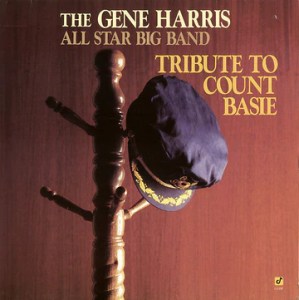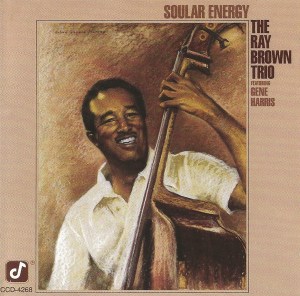More Jazz Recordings
- With seriously good Double Plus (A++) sound from first note to last, this original Concord LP is doing just about everything right
- Gene Harris, one of my favorite pianists, leads an all star crew on a series of tracks performed in the spirit of Count Basie
- One of the better sounding Concord records we’ve ever played – this is one of the real sleepers from the label, with plenty of Big Band ENERGY in the grooves
- Concord turns out consistently boring jazz 98% of the time, but here’s a record that fits into that 2% slice and is guaranteed to make you sit up and pay attention
- “Harris’ 16-piece orchestra does bring back the spirit of Basie’s band…with a lightly but steadily swinging rhythm section and such soloists as trumpeters Conte Candoli and Jon Faddis and tenors Plas Johnson and Bob Cooper.”
Since when did Concord learn to make a record that sounds as good as this one, with inspired, energetic performances from this solid group of veterans of the jazz wars no less?
Where is the typical Concord sub-gen, opaque, closed-in, compressed and lifeless sound we’ve been hearing all our lives? This is one jazz label that has done almost nothing of any real interest from the very start, and yet somehow they not only managed to get Gene Harris and his band of All Stars to play with tremendous enthusiasm and skill, they actually managed to capture, with considerable fidelity I might add, the prodigious big band energy they produced onto a reel of analog tape. I wouldn’t have believed it if I hadn’t heard it with my own two ears.
Not only is the sound EXCELLENT, but the big band really swings. They pull out all the stops. Gene Harris, one of my favorite pianists, leads an all star crew on a series of tracks performed in the spirit of Count Basie. Not a slavish recreation, but an inspired performance in his style. This has to be one of the best sounding Concord records I’ve ever heard. Without a doubt one of the real sleepers from the label.


